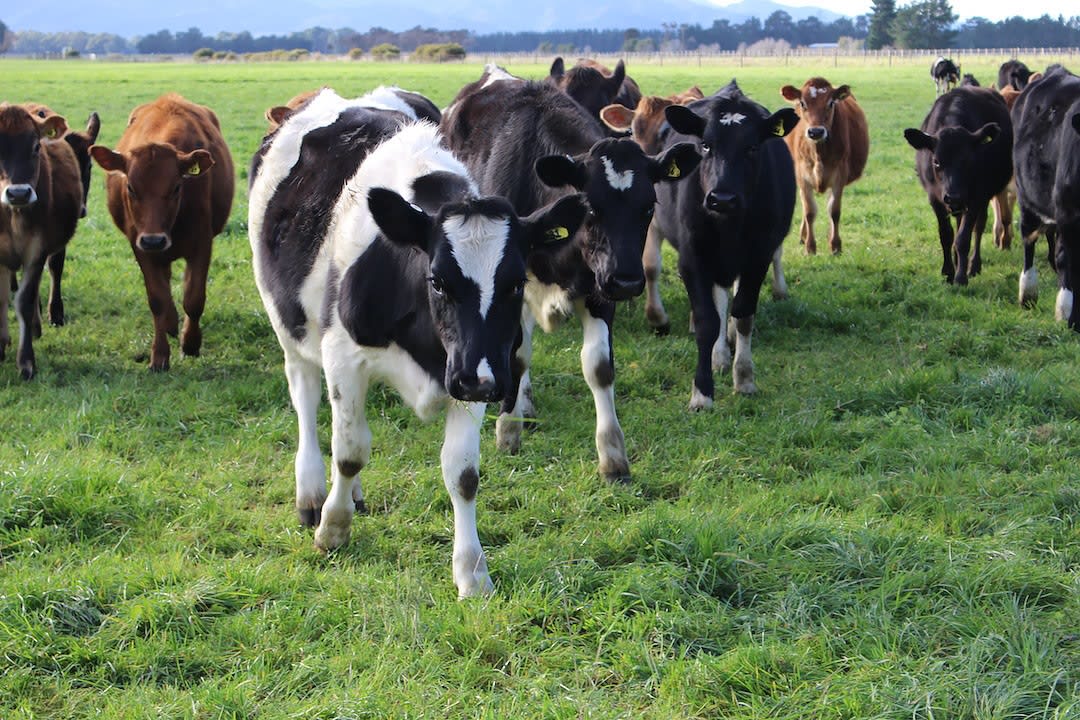
ACT party leader David Seymour is accusing the Government of giving Māori preferential treatment over water. But Aaron Smale argues it is the voters Seymour is trying to attract - Pākehā farmers - who have already been given property rights over huge volumes of water
Comment: Whenever Māori try to assert any rights to water it’s treated by politicians as scandalous or a complete non-starter. There usually follows vague accusations of apartheid and special rights being granted to a minority. This reeks of hypocrisy because a racial minority has already grabbed property rights over water and they’ve been doing so for the past three decades. That minority is Pākehā farmers.
The latest iteration of this politics of race is in response to Labour’s Three Waters policy. ACT leader David Seymour is trying to poach votes from National’s right flank, which would include a large bloc of Pākehā farmers.
“Labour’s push for co-governance of our water assets is another small step towards a Partnership State where a small number of New Zealanders have greater rights under the law,” says Seymour.
“It’s reminiscent of feudalism or the caste system where certain groups get the inside running,” he says.

This is disingenuous at best, cynical at worst. A certain group has had the inside running for a long time and that group isn’t Māori. Go to any Fonterra AGM and the demographic that predominates are middle-aged to old white men. There’s just over 10,000 farmer shareholders in Fonterra, which is equivalent to an okay turnout at a Hurricanes game. In the past 30 years they have been handed water “assets” - Seymour’s word - for virtually free while the cost of that rights grab has been nationalised in the form of rivers that are degraded.
There are more than six million dairy cattle in New Zealand. A cow will consume about 70 litres of water a day, which across the country amounts to more than 400,000,000 litres. That doesn’t include the significant amount of water required to run a cowshed which includes the milk cooling system and washing down. Nor does it include the huge volumes being dragged out of rivers and aquifers for irrigation.
The numbers of dairy cows has nearly doubled in the past 30 years, which has led to more land being converted to dairy and higher stocking rates on that land. Farms have grown in size meaning there’s a smaller number of farmers owning more land and livestock. A number of those owners are corporate entities.
During a period in the early 2000s when I was covering agriculture it was noticeable that regional councils tended to be stacked with farmer members. So they had a huge say over how water rights were divvied out and they tended to look favourably on resource consent applications for water from farmers.
But the stampede for water rights was even pitting farmer against farmer on occasion. On one story I covered, a corporate farming entity, headed by a Federated Farmers leader, applied for a resource consent for a massive amount of water on the Opiki plain near Palmerston North. Before the application was publicly notified, the farm was running test bores which sucked out huge volumes with massive pumps and left neighbouring farmers without water. Many of them had been accessing the water for more than 50 years without any need for huge pumps because there was enough artesian pressure and they were alarmed when these bores suddenly dried up without explanation. Once they found out the reason, they were bitterly opposed to the application. In the end the corporation got its way, the logic essentially being that having a bigger pump gave you more of a right to the water underground. The regional council’s message to the corporate farmers was to take what you want and too bad for others.
But study after study after study has shown that the increased stocking rates and higher volumes of fertiliser, with higher water take by dairy farmers, has contributed to higher nitrate levels in the water that is left. While a lot of waste from cows is absorbed by pasture, a lot isn't. Although there are restrictions on cows walking through rivers (and defecating along the way), that’s not the major problem. The problem is when you’ve got millions of cows urinating straight into the ground water.
That doesn’t even take into consideration the contribution to greenhouse gases made by dairy cows.
This has been going on for 30 years with barely a whimper from politicians, aside from the Greens. Labour doesn’t want to alienate farmers - with whom they already have a precarious relationship - or provide National with a point of attack. National relies on farming votes and won’t challenge some of the behaviour of its own constituents. So Pākehā farmers get a political free ride when it comes to claiming property rights over water.
But when Māori raise water rights you’d think they were announcing the arrival of Armageddon. Any time Māori have made any kind of claim to water rights, politicians have given various contradictory responses - everyone owns the water or no one owns the water. Certainly none of them will concede that Māori have any actual property rights in water.
However, water usage rights are a de facto property right and have a substantial economic value that accrues to farmers who gain them. A farmer who wants to convert a sheep farm to dairy has to go through a resource consent process to gain access to the significantly increased volume of water needed. While there is an administrative cost to this process, the water itself is essentially given to the farmer. But the resource consent immediately adds significant value to the price of the land and banks will approve higher loans for a farmer who has that piece of paper. It’s a recognition that the farmer has a property right with a measurable monetary value.
Farmers will argue that they pay for that water through their rates, which can be astronomical. But rates are not directly attached to water, they are based on property values. Again, those high property values are based on a property right over water.

So yes, dairy farmers do own water in this country and lots of it. And most of them are Pākehā. Māori have significant farming interests but they are small compared with the farms owned by Pākehā. Māori farms are owned by iwi and hapu collectives and the leadership have to answer to shareholders who are their own whānau, and they take a dim view of their rivers being polluted. There's nothing an iwi board member fears more than an old kuia giving them a tongue-lashing in a shareholders meeting. Pākehā farmers answer to the banks and the banks are only interested in the figure at the bottom of the balance sheet.
Seymour’s claim that Māori having a seat at the table is a form of feudalism is ironic. Resources such as water and land are increasingly being concentrated in the hands of fewer and fewer people and those people aren’t Māori. This is an outcome of the neoliberalism launched by one of ACT’s founders, Roger Douglas, and it continues right through not just ACT but the two major parties. Everything is treated as a private commodity that can be owned and exploited and Pākehā farmers are quite happy to include water in this, even though it supposedly belongs to everyone.
While farmers largely get that precious resource for free, the whole country has to put up with the damage to rivers and waterways caused by the huge increase in the numbers of cows. Farmers have privatised huge volumes of water and the economic value of that water, while nationalising the pollution and ecological damage. It’s no surprise that ACT and National are silent on this because it is a perfect example of their neoliberal assumptions - privatise the profit and externalise the cost.
In more than 20 years as a journalist, much of it spent covering agribusiness, I’ve watched farmers complain about costs. Some of that is justified. But what they don’t want to acknowledge is that the most significant costs are self-inflicted. Dairy farmers have been worse that Auckland housing investors in not just speculating but banking on capital gains and borrowing to the hilt against those untaxed gains. Banks have jumped on the bandwagon by throwing cheap credit at farmers, convincing them they really do need that latest tractor or Toyota Hilux.
Any company selling anything to farmers, from supplementary feed to fence posts, has cashed in on this bank-fuelled bonanza. Consequently farmers have borrowed to the hilt, maxing out their debt based on the value of their farms that kept climbing. This continued to the point that New Zealand’s low-cost farming model is now a thing of the distant past.
Where we once ran farms far cheaper than the likes of the US, now New Zealand farm cost structures are on a par with their counterparts in the US. Which means our competition can now outgun us when it comes to price. Those farms with higher stocking rates have higher overheads and aren’t necessarily any more profitable than a lower input operation.
Fonterra has repeatedly promised to move up the value chain and develop more profitable products. This promise has not materialised in any significant way. Instead the dairy industry has continued to rely on a high volume business model, which means more cows.
What does this have to do with water? Everything. All of this has been built on the assumption of free access to massive volumes of water handed out to farmers as a property right. Witness the massive irrigation units in dairying regions, particularly Canterbury. Those irrigation units cost hundreds of thousands of dollars and add to that farm’s debt obligations and the cost of every litre of milk it produces. Canterbury was once never really thought of as a dairy region because of its shallow soils and propensity to dry out in summer when the infamous nor-wester would shrivel up pastures. But massive irrigation has turned Canterbury into one of the biggest dairy regions in the country - at the expense of the rivers.
If there is going to be an honest political discussion about water - who owns it, what rights Māori have, what rights the public has - it needs to start by acknowledging a minority has already taken ownership of a huge volume of the water in aquifers and rivers for its own private gain. This has happened to their profit and everyone else’s expense.
* Editors note: This piece had earlier been incorrectly labelled as being funded by the Public Interest Journalism Fund. *







